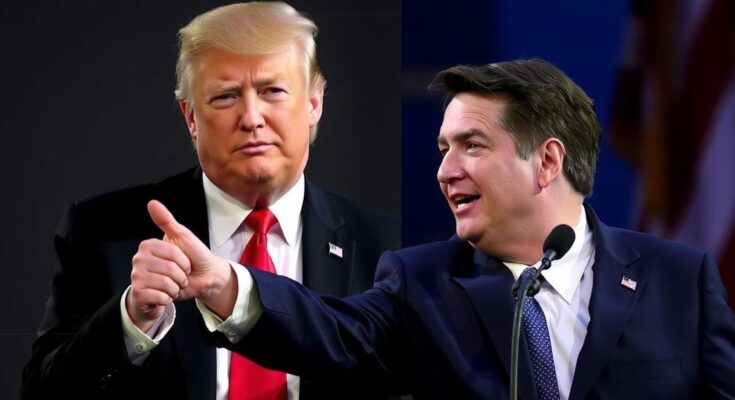President-elect Donald Trump’s nomination of Matt Gaetz as attorney general has shocked Washington, causing audible gasps among House Republicans. Gaetz’s resignation amid controversy and ongoing ethical investigations adds fuel to the fire. His selection, alongside other controversial figures like Tulsi Gabbard and Marco Rubio, showcases Trump’s grip on the GOP as they prepare for a new legislative session.
The political landscape in Washington recently trembled as President-elect Donald Trump nominated former Florida Representative Matt Gaetz as his attorney general, a move that took many, both within the GOP and across the aisle, by surprise. House Republicans reportedly reacted with gasps at the news, and Gaetz quickly resigned his congressional seat. His nomination not only draws attention due to his controversial past but also effectively sidelines an ongoing ethics probe regarding allegations of sexual misconduct and drug use against him. The news prompted a mix of skepticism and incredulity from lawmakers; Alaska Senator Lisa Murkowski doubted the seriousness of the nomination while Vermont Democrat Peter Welch suggested it was more befitting a satirical publication than reality. Amid this upheaval, Trump has also named Tulsi Gabbard as director of national intelligence and Marco Rubio to head the State Department, further asserting his influence and vision for his upcoming administration. The GOP’s recent successes in the midterms grant them control of Congress, allowing Trump to fill critical positions with allies. Some Republican senators, including Susan Collins of Maine, expressed shock over Gaetz’s pick, indicating that he might struggle to secure Senate confirmation. Meanwhile, Alabama Senator Tommy Tuberville issued a warning to dissenters within his party, threatening to take action against any Republican opposing Gaetz’s nomination. The atmosphere among Republican ranks appears tense as they brace for a contentious confirmation battle that may further divide party members. This nomination comes on the heels of Trump’s completion of a Republican sweep in Congress, securing their hold on both the House and Senate. With the GOP’s tight majorities, party leaders are now envisioning a plan to swiftly implement Trump’s ambitious agenda and reshape the federal government. While Republicans brace for the debate surrounding Gaetz, Trump is also grappling with internal challenges, such as the sudden withdrawal of legal representation for his former attorney Rudy Giuliani in a defamation case, suggesting a bigger turbulent period ahead for the Trump administration.
Following the midterm elections, the Republican Party regained control of both the House and Senate, permitting President-elect Donald Trump to assert a stronger influence in shaping his next administration. The choice of Matt Gaetz as attorney general was particularly controversial due to his past allegations and ongoing investigations, marking a significant decision that has reverberated throughout Capitol Hill. The reactions from lawmakers of all stripes illustrate a divide within the party and highlight the political maneuverings Trump will need to navigate.
Trump’s selection of Matt Gaetz as attorney general has sparked widespread disbelief and concern among Republicans and Democrats alike. His profile, marred by allegations, raises questions about his fitness for the role while also raising the stakes for party unity during confirmation proceedings. As the GOP adjusts to its legislative power and the internal struggles of the Trump administration unfold, the appointment of Gaetz stands as both a contentious issue and a barometer of party stability moving forward.
Original Source: www.independent.co.uk



